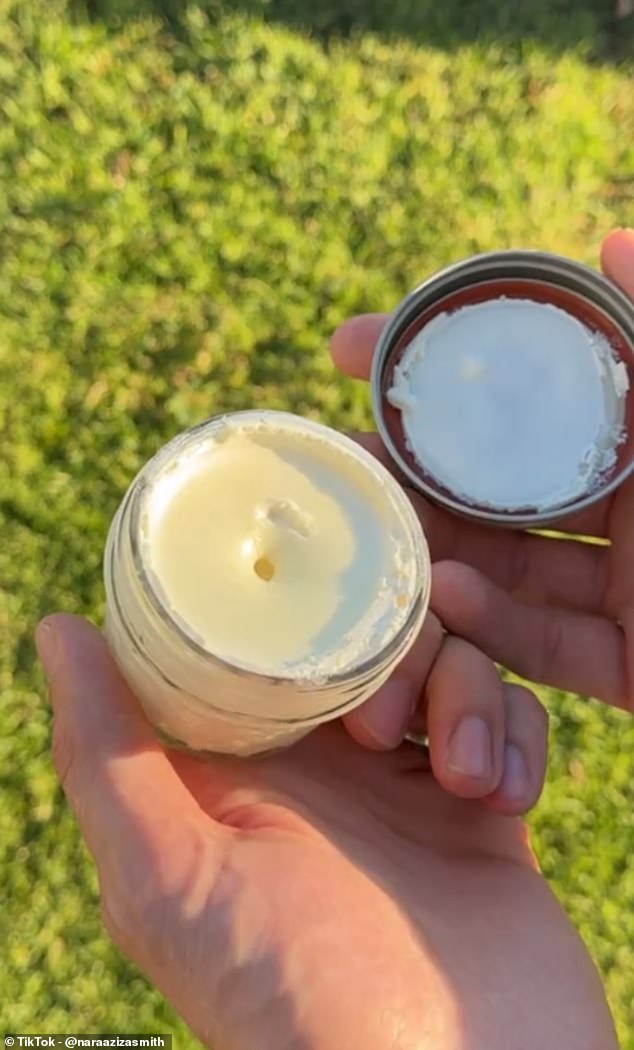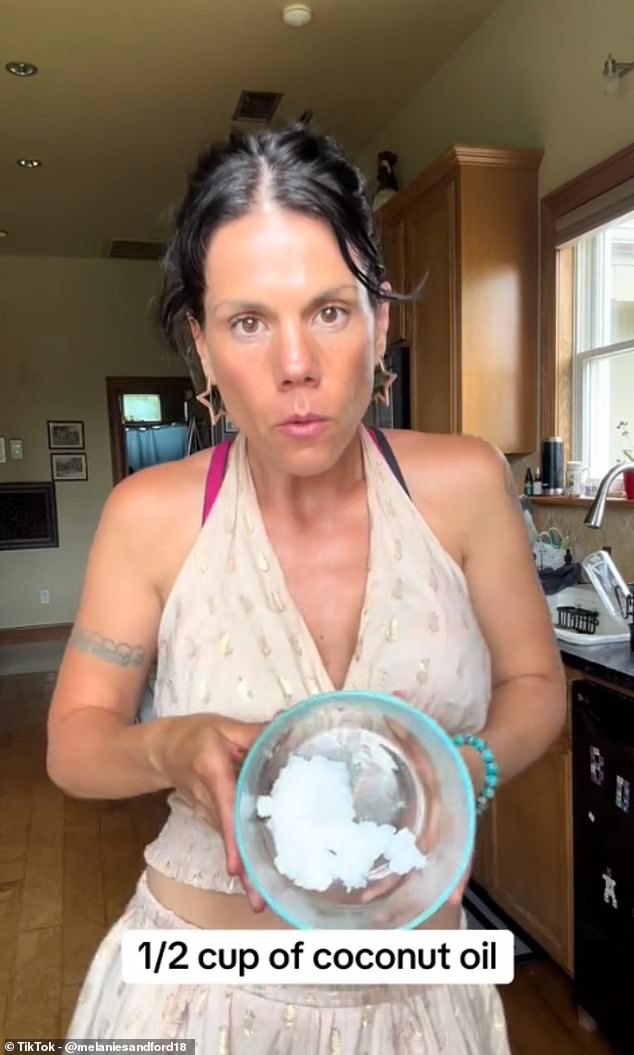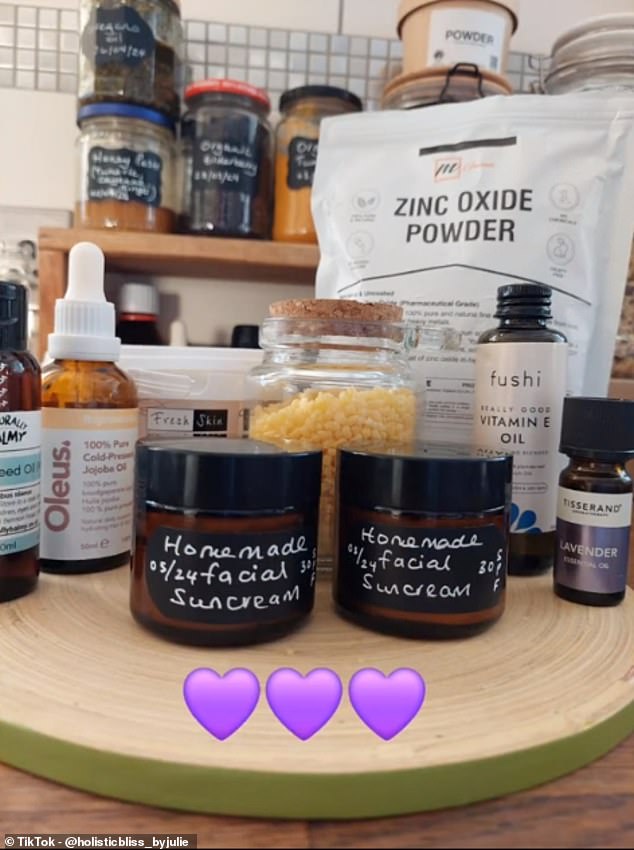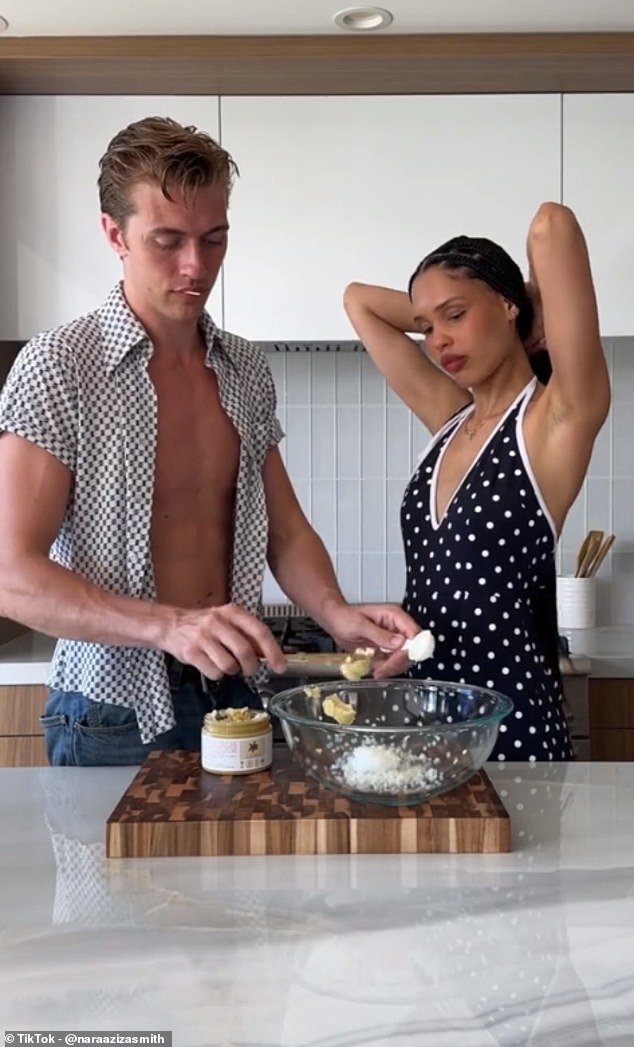As the summer sun shines brightly, experts stress the importance of using a high-quality SPF every day, regardless of the weather.
However, a worrying trend has emerged on social media: influencers are promoting homemade sun protection solutions, prompting urgent warnings from skincare professionals.
The trend has gained traction thanks to popular influencer Nara Smith, a 22-year-old South African content creator known for her mini cooking and “traditional wife” lifestyle vlogs.
With a cult following of 8.9 million on her TikTok account, @naraazizasmith, Smith recently ventured into the wellness realm by posting a video on June 25 showing off her homemade sunscreen recipe.
He video features Smith and her husband, American model Lucky Blue Smith, concocting an SPF using coconut oil, beeswax, shea butter, cocoa butter, jojoba oil and zinc oxide powder.
A worrying trend has emerged on social media, where influencers like Nara Smith (pictured, right) are promoting homemade sun protection solutions.

Smith and her husband, American model Lucky Blue Smith, make a sunscreen in a TikTok video using coconut oil, beeswax, shea butter, cocoa butter, jojoba oil and zinc oxide powder.
In the clip, the content creator insists that the product “goes on smoothly” to the skin and “doesn’t leave a white cast.”
This DIY SPF trend fits right into one of the many TikTok fads, where controversial wellness influencers often claim that commercial SPF products are harmful and can cause cancer.
Smith’s video has since inspired dozens of creators to share their own homemade sunscreen recipes, but skincare experts are sounding the alarm about the potential dangers of the practice.
GP, skin expert and cosmetic doctor Dr Ahmed el Muntasar has teamed up with SPF brand Hello Sunday to discuss why SPF is necessary and why you shouldn’t try to create a homemade version.
She said: “SPF is the most important step in your skincare routine because it ultimately helps protect your skin from UV light, prevents signs of aging, and maintains the integrity of your skin. Overall, it’s a really good habit to maintain and stick to.”
She warned against the tendency to make one’s own sunscreen, emphasizing the difficulty of achieving the proper consistency and concentration needed for effective sun protection.
Dr Ahmed continued: ‘I am very much against making homemade sunscreen because ultimately it is quite difficult to make it in the right consistency and concentration and it can give you a false sense of security.
‘You may think you’re protected when you’ve mixed up the ingredients and you’re not actually getting the protection you want.’

Smith’s video has since inspired dozens of creators to share their own homemade sunscreen recipes using similar ingredients.

Dr Ahmed el Muntasar, a GP and cosmetic doctor, warns against this trend and highlights the difficulty of achieving the right consistency and concentration needed for effective sun protection.



Thousands of TikTok users have also echoed these concerns, condemning Smith’s alternative to commercial sunscreen.
She also highlighted the problem of uneven distribution of homemade sunscreens, which can result in some areas not receiving adequate protection. “Overall, it does not meet with Dr Ahmed’s approval,” she concluded.
Thousands of TikTok users have also echoed these concerns, condemning Smith’s alternative to commercial sunscreen, as one user commented: “Yes, homemade sunscreen is also homemade melanoma.”
Another added: “I love this girl but this is not a good idea,” while a third joked: “You guys are going to FRY this summer with this concoction.”
This comes as another expert reveals the 11 most common mistakes when using sunscreen, including taking medications that interfere with SPF and leaving jars of cream out in the sun.
According to Cancer Research UK, 86 percent of melanoma skin cancer cases in the UK are preventable.
Which? has rounded up 11 of the most common sunscreen mistakes you should avoid to ensure your safety in the sun.


